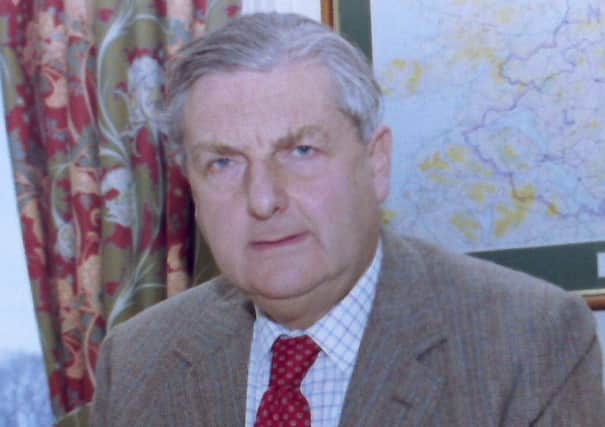Declassified files: In a border poll the British government would be neutral, Mayhew said


In a conversation with Senator George Mitchell, the man who would go on to chair the talks which would lead to the Belfast Agreement, Sir Patrick Mayhew set out a view of strict neutrality if a border poll was ever held.
The veteran Tory minister told Mr Mitchell – who was then the Senate majority leader – that in the event of a border poll “the government would be persuaders neither for a united Ireland nor for maintenance of the Union”.
Advertisement
Hide AdAdvertisement
Hide AdThat stance is different to the one now adopted by Theresa May and by her predecessor David Cameron, both of whom have said that they will never be neutral on the Union – but would respect any democratically expressed wish of the majority in Northern Ireland to leave the Union.
Sir Patrick’s conversation with Mr Mitchell came during the secretary of state’s April 1994 visit to the US.
A note of their encounter was compiled by Jonathan Stephens, who then was private secretary to Sir Patrick but now is the NIO’s most senior civil servant. He said: “Having just twice turned down president Clinton’s offer of a seat on the Supreme Court, Senator Mitchell’s thoughts were understandably not focused principally on Northern Ireland.
“The Secretary of State set out the current situation in standard terms and, in answer to a question from Senator Mitchell about what might form the ultimate resolution, explained the talks process and the Government’s interest in securing any solution which commanded the support of the parties.
Advertisement
Hide AdAdvertisement
Hide Ad“Nothing was ruled out and nothing ruled in, but it was very unlikely that a majority in Northern Ireland would agree to a united Ireland, so the talks were focusing on the devolution of responsibilities within Northern ireland, the recognition of the Irish identity by means of north/south institutions, and keeping open the route to a united Ireland were that ever to become the wish of a majority.”
The files declassifed at the Public Record Office under the 20-year rule also show that former US president Jimmy Carter was suggested for the role which would ultimately be taken by Mr Mitchell, that of US peace envoy to Northern Ireland.
Jonathan Powell, who would himself have a key role under Tony Blair, was then working in the British Embassy in Washington. He relayed to London that former congressman Bruce Morrison “did not envisage an Irish American filling the role ... he envisaged instead someone completely independent, like Jimmy Carter”.